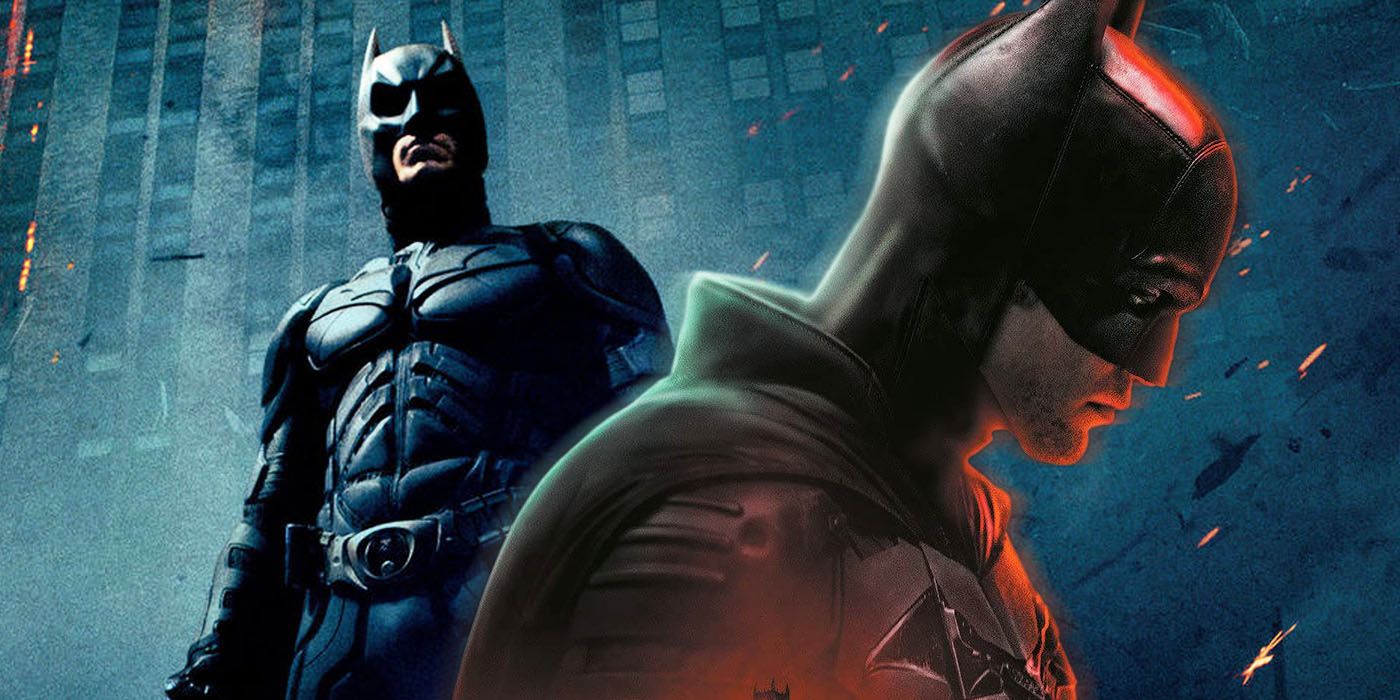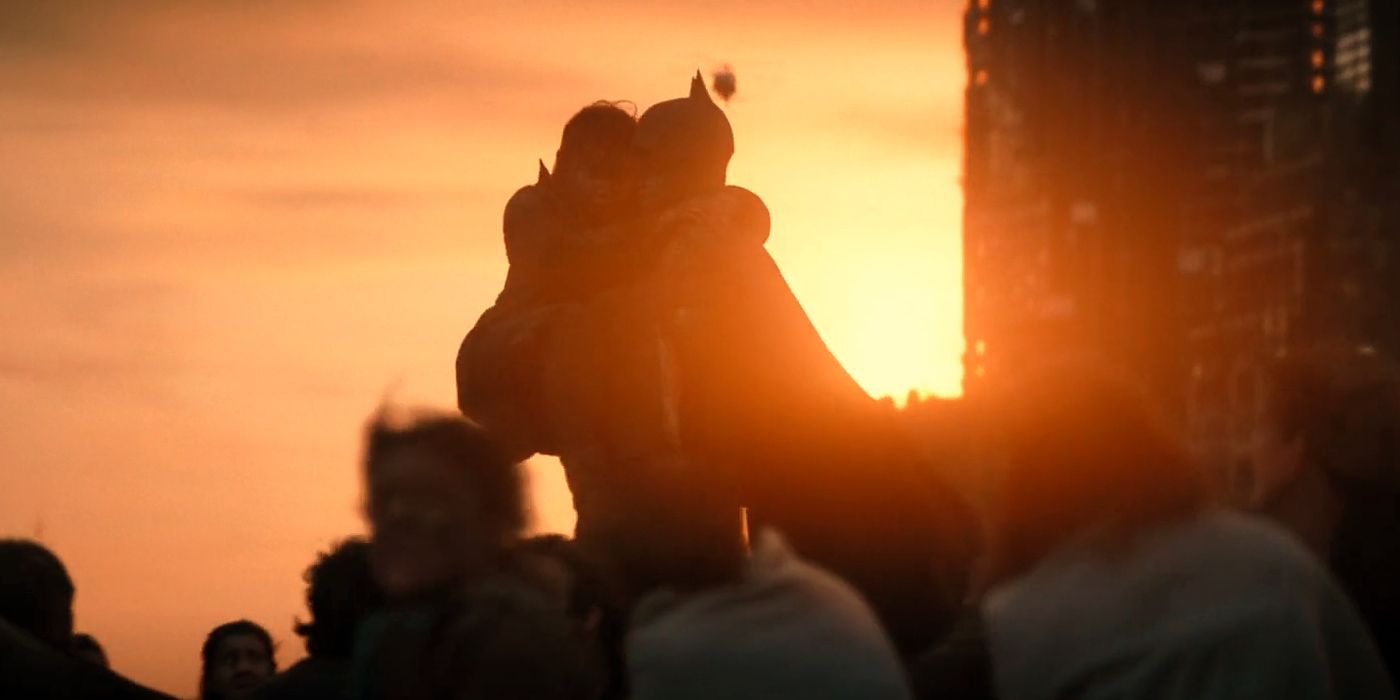2008’s The Dark Knight was a pop culture earthquake, drawing upon the success of Batman Begins to restore the character to greatness after the ignominious end of the Tim Burton/Joel Schumacher cycle. Some of it stemmed from the tragic passing of Heath Ledger, and his performance as The Joker, which earned him a posthumous Oscar. But it also broke box office records while establishing a surprisingly grim vision of Gotham, and ended with one of the most downbeat endings in modern blockbuster history.
The success of The Batman earlier this year comes in part because it adopts such a similar ethos for its story. Both movies reveal a Gotham devoid of aliens, magic or superpowers: one that could conceivably exist in the real world, and which contains all the real problems that crime and systemic corruption can bring. Both movies use it to explore the personality and motives of their shared protagonist. And yet both films do so with story arcs perfectly, symmetrically opposed. One film ends by embracing despair. The other one lionizes the rise out of it.
Thematically, both movies are a subtle study in contrasts. The Dark Knight finds Gotham doing better than it has in many years, with police reform taking hold and the Batman’s efforts taking organized crime in the city to the brink of collapse. That’s when The Joker arrives, threatening to merrily burn everything they’ve accomplished to the ground to prove a point about human nature. Batman and his allies fight to protect all of that through the course of the movie.
Only in the end, when The Joker has successfully turned Harvey Dent into Two-Face and threatens to undo his successful prosecutions, do they falter. In order to protect what they have won and keep Gotham safe, Batman perpetrates a lie: that he killed Two-Face’s victims. The compromise is so morally tainted that the sequel, The Dark Knight Rises concerned itself almost entirely with the fallout. In order to protect the light, Batman has to sell a piece of his soul.
With The Batman, the exact opposite is true. Gotham is beyond hope, and has been despite Batman operating for over two years. That includes at least one serious tangle with The Joker – rotting in Arkham as the movie begins – and created a tenuous alliance with James Gordon, but it seems to be having little impact otherwise. Much of that comes from Batman’s focus on punishing criminals after the fact rather than protecting and defending their victims. “I’m vengeance,” he tells the goons in the film’s opening minutes, a line echoed at the end by one of The Riddler’s henchmen just before floodwaters breach the civic center. It’s a key part of the film’s nihilistic tone. The Batman isn’t protecting anything because in this Gotham, there’s nothing left to protect.
But while The Dark Knight’s Batman has to descend into that darkness in order to keep the city safe, The Batman’s Bruce Wayne has to climb out of it. He realizes – as with The Dark Knight’s Harvey Dent – that the reform-minded mayor-elect is vital to the city’s survival. He saves her from the flood and ensuing destruction, as well as hundreds of others trapped with her. “Vengeance won’t change the past,” he muses in the film’s voiceover. “Mine or anyone else’s. I have to become more. People need hope, to know someone is out there for them.” The line echoes a similar one in The Dark Knight, to much different effect: “Sometimes, the truth isn’t good enough. Sometimes people deserve more. Sometimes people deserve to have their faith rewarded.”
In both cases, Batman is attempting to face the challenge of the moment, and is prepared to give of himself for the sake of the city. But while The Dark Knight paints that as a fall from grace – with a city on the mend and in desperate need of a reprieve – The Batman reveals it as a clarion call to climb out of the despair. Both of them speak to the larger crises of their time, and both use a resolutely realistic version of Gotham to do it. The symmetry of their final message – each almost a mirror of the other – is a strange testament to how well they both understand their central figure.
Both The Batman and The Dark Knight are available to stream on HBO Max.



